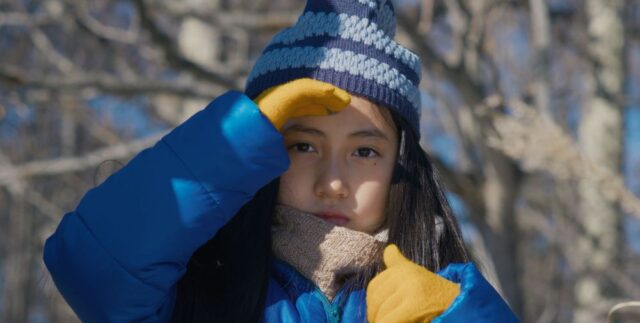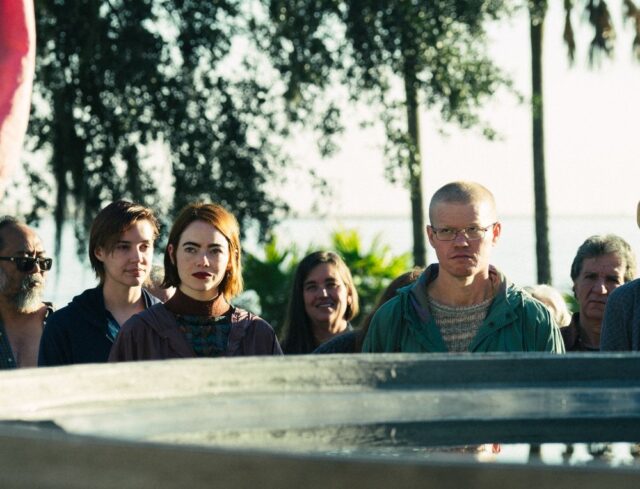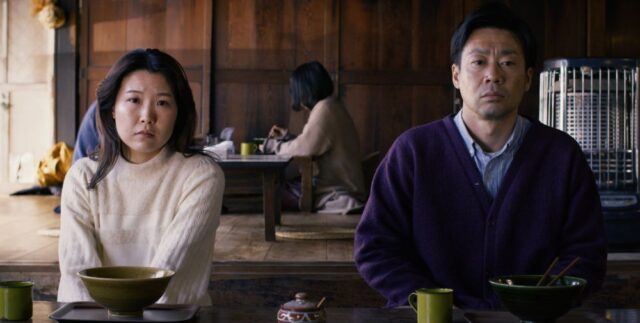So, let’s be consumer-forward: Year-end lists aren’t about critics planting their flags in the media moment’s lunar surface and declaring ownership of the Zeitgeist, however much they might feel like they can, or should. The profession does encourage an unhealthy amount of self-preoccupation, but really, it ain’t you, babe — as the long-lost Chuck Stephens once blasted online, reviewers who start off with first-person pronouns in their first paragraph have already failed. (Not that we all haven’t occasionally gone there — hopefully, very occasionally.) Among other things, film crit as it’s best practiced in the post-Kael/Sarris era means you try your best not to refocus the discussion on your own dingus. Rather, you are at the reader’s service, because we all know that everything we hear or read about a movie that doesn’t come from a critic, or a civilian of personal acquaintance, is just paid publicity.
Which means, the more we hear/read about a movie, the bigger its PR budget, and with that the decreasing likelihood that the movie in question is worth our time. Ergo, now more than ever, the must-sees are not the films you’ve heard the most about — it’s pretty much a tautology. You could do a lot worse than decide that if a filmmaker is profiled in The New Yorker (thanks for telling me what cazh-but-cool outfit they wore to lunch!), or shows up chatting on more than one podcast, or becomes the locus of some kind of suspiciously calculated social-media “controversy,” you can write their film off as inessential. This isn’t new — the PR siege machine has always rolled; now, online, it has merely turned into sludgy cyberwar, counting views and likes and trying to signify, in weird and often inconclusive ways. (Having tens of thousands of Insta followers doesn’t necessarily mean very many of them will pay to see one’s new film.) If they can control your attention, they win. Meanwhile, you, dear reader, will have found the critics that get you, and at the end of the year handily Letterboxd the year’s films that mattered to them.
Which brings us to 2024, limping mutt that it has been, noticeably dominated for me by acts of radical discomfiture. Who can be surprised if I’m thinking the America around me is getting too complacent, much too proudly ignorant, and a good deal Wile E. Coyote-ish, only oblivious to the fact that we’ve run off a cliff because we haven’t bothered to look down yet. Movies that poke instead of stroke have always had the ring of truthfulness to me, but this year, for reasons we’re all tired of hearing about, they were sending me flares.
So, in order of preference/perceived virtuosity, of course:
1. Do Not Expect Too Much from the End of the World (Radu Jude, Romania)

There’s been a Romanian on my list 12 out of the past 14 years; talk about brand reliability. In his headlong, Son of Jean-Luc kind of way, Jude is his nation’s grandest carpet-spoiler, and this layered, up-your-nose provocation surges and bristles with high-spirited ire, pissing all over a half-assed modernity in which if something doesn’t happen on a screen, it doesn’t happen. It’s heroic.
2. Evil Does Not Exist (Ryûsuke Hamaguchi, Japan)

Hamaguchi could make a film about trash collection and imbue it with disarming questions and unpredictable wisdom, a trick he seems to pull off mostly by way of drama-calming sighs; unresolvable relationships left as is; a supernatural attention to how real people quietly connect, or don’t; and the many things unsaid. Just watch how this film’s sympathetic POV switches midstream from its mountain-village widower hero to the stranded corporate consultants sent to massage the town’s resistance to a development project, and back again, no hurry, amid a slew of other fish, as if to shame us for judging anyone too quickly, or at all. If I were a shrink, I’d recommend Hamaguchi movies to depressed and misanthropic patients — and to Trump voters.
3. Kinds of Kindness (Yorgos Lanthimos, U.S.)

Talk about discomfort: This is an epic tripartite ordeal by power and perversion that I’d be delighted to force those same Trump voters to watch with Clockwork Orange eyelid clamps. A return to Lanthimos’s acidic framing and metaphoric plotting, it’s a movie that encourages a degree of rather unhealthy schadenfreude in regard to naive viewers who like Emma Stone and/or thought Poor Things was a naughty blast. We shouldn’t go there often, but this ogre makes the impulse sing.
4. Family Portrait (Lucy Kerr, U.S.)
Here’s what we mean when we talk about movies run over by the monster trucks of other movies’ publicity — this tiny, tense, elliptical little daydream of an indie would have barely stood a chance without a wave of critical support, which, though hardly a wave, was nearly unanimous, and didn’t quite oomph over the fence. This is the year’s sneaky underdog, a brief and mysterious study of familial discombobulation that revels in what you can do with nearly nothing if you are awake to the slippages and weirdnesses of narrative filmmaking.
5. Good One (India Donaldson, U.S.)
Similarly pocket-size but grounded in the real but hidden world of inside-out men, this superb debut could’ve used a less generic title but wants for nothing in regard to its take on mundane humanity, all with one sensible teenage girl and two aging-out modern men in the woods trying to act normal. James Le Gros, in the subtlest role as the supercool Dad who doesn’t quite live up to himself, gets my Best Supporting Actor tip.
6. The Girl with the Needle (Magnus von Horn, Denmark)
A black marble of a movie that uses a WWI-era serial killer case in Copenhagen as mere context for a grueling and remorseless portrait of women’s lives jaw-clamped between patriarchy and biology. Unpredictable but expertly script-built, shot with ebony steeliness, and fearless.
7. Close Your Eyes (Victor Erice, Spain)
The greatest living Spanish filmmaker returns after a three-decade nap, and spins a meta-filmic yarn in search of lost time and lost movies as only an old master should be allowed to do. It’s a grand victory lap, but to get all the melancholy feels, a fresh screening of Erice’s three previous films, starting with The Spirit of the Beehive (1973), may be a prerequisite.
8. Nickel Boys (RaMell Ross, U.S.)
Ross’s beautiful daydream of a debut doc, Hale County This Morning, This Evening (2018), turns out to be a non-one-off — he takes the same poetic-elliptical sensibility, plus some, and remakes Colson Whitehead’s Pulitzer-winner into a dazzling subjective fugue-trip through a forgotten backwater of 20th-century all-American racism. The first-person camera gambit gets a little tiring toward the final stretch, but it’s still the most imaginative and appropriate employment of the technique ever attempted. Bravo.
9. The Devil’s Bath (Veronika Franz and Severin Fiala, Austria)
The year’s second great bilious dish of proto-feminist Euro-history, following a woman’s doomed arc in 18th-century Christianity, where senseless murder becomes “suicide by proxy” in response to an unlivable life. Brutally uncompromised — however, the marketing made it seem as though it were a horror film.
10. Soundtrack to a Coup d’Etat (Johan Grimonprez, Belgium)
A vast, sprawling, culturally alive found-footage documentary that tapestries together the decolonialization of Africa after WWII, the fate of the uranium-rich Congo and its new and doomed prime minister Patrice Lumumba, UN-based skullduggery on behalf of the power states, and how American jazz artists negotiated the sociopolitical razor-maze therein. Witty and appalling, it’s one of those docs no global teen should be allowed to graduate high school without seeing.
And, because the decimal system discriminates against the polydactyl, my runners-up, in order: Green Border (Agnieszka Holland, Poland), The Seed of the Sacred Fig (Mohammad Rasoulof, Iran), I Saw the TV Glow (Jane Schoenbrun, U.S.), A Real Pain (Jesse Eisenberg, U.S.), All We Imagine As Light (Payal Kapadia, India), Sasquatch Sunset (Nathan and David Zellner, U.S.), Riddle of Fire (Weston Razooli, U.S.), The Settlers (Felipe Gálvez Haberle, Chile), Anora (Sean Baker, U.S.), Stress Positions (Theda Hammel, U.S.), Cuckoo (Tilman Singer, Germany).
But wait, there’s more — we often watch not-new movies as well, don’t we? New-to-me has always been a vital part of my movie year, and so, as I’ve done forever online (and as far as I can see, I pioneered this year-end habit — ouch, pronoun-bearing solipsism!), here are my un-contemporary standouts, again in order of esteem.
Fairytale (Skazka) (Aleksandr Sokurov, 2022) (Reportedly, this brilliant found-footage concoction is due for a U.S. release next year, fingers crossed.)
The Woman of Rumor (The Crucified Woman) (Kenji Mizoguchi, 1954)
There’s No Tomorrow (Sans Lendemain) (Max Ophuls, 1939)
Knock on Any Door (Nicholas Ray, 1949)
Be Kind Rewind (Michel Gondry, 2008)
After Yang (Kogonada, 2021)
Centro Histórico (Pedro Costa, Victor Erice, Aki Kaurismäki, and Manoel de Oliveira, 2012)
Bluebeard (Kékszakállú) (Gastón Solnicki, 2016)
Back to the Wall (Le Dos au Mur) (Éduard Molinaro, 1958)
The Clockmaker of St. Paul (L’Horloger de Saint-Paul) (Bertrand Tavernier, 1974)
Beggars of Life (William A. Wellman, 1928)
Princess Yang Kwei Fei (Kenji Mizoguchi, 1955)
Laugh, Clown, Laugh (Herbert Brenon, 1928)
The French Conspiracy (L’Attentat) (Yves Boisset, 1972)
Return of the Witch (Noita Palaa Elämään) (Roland af Hällström, 1952)
Summer Storm (Douglas Sirk, 1944)
Quatermass 2 (Enemy from Space) (Val Guest, 1957)
The Merry Widow (Erich von Stroheim, 1925)
Kill It and Leave This Town (Zabij to i Wyjedź z Tego Miasta) (Mariusz Wilczynski, 2020)
A Ship to India (Ingmar Bergman, 1947)
The Ace of Hearts (Wallace Worsley, 1921)
Antares (Götz Spielmann, 2004)
China 9, Liberty 37 (Monte Hellman, 1978)
Hotel (Jessica Hausner, 2004)
The Blue Lamp (Basil Dearden, 1950)
Cécile est Morte! (Maurice Tourneur, 1943)
The Third Lover (L’Oeil du Malin) (Claude Chabrol, 1962)
By the Bluest of Seas (Boris Barnet, 1936)
Salomé (Alla Nazimova and Charles Bryant, 1922)
Most of these were found in the unhawked subcellars of various free streaming founts, including YouTube, Kanopy, Tubi, and Archive.org, so here again, a critic’s excavations could provide an alternative to streaming catatonia: the dreaded, time-devouring quicksand of blipping through cycles of platform-menu recommends, offering as they do dozens (not hundreds) of choices and barking at you before you even have a chance to read the cast list. The demonic forces of convenience will continue to pare down your options while pretending to cater to your every unformed whim, and active resistance is necessary, with the guerrilla force of threadbare movie critics at your side. The battle continues.




